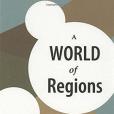內容簡介
Observing the dramatic shift in world politics since the end of the Cold War, Peter J. Katzenstein argues that regions have become critical to contemporary world politics. This view is in stark contrast to those who focus on the purportedly stubborn persistence of the nation-state or the inevitable march of globalization. In detailed studies of technology and foreign investment...(展開全部) Observing the dramatic shift in world politics since the end of the Cold War, Peter J. Katzenstein argues that regions have become critical to contemporary world politics. This view is in stark contrast to those who focus on the purportedly stubborn persistence of the nation-state or the inevitable march of globalization. In detailed studies of technology and foreign investment, domestic and international security, and cultural diplomacy and popular culture, Katzenstein examines the changing regional dynamics of Europe and Asia, which are linked to the United States through Germany and Japan. Regions, Katzenstein contends, are interacting closely with an American imperium that combines territorial and non-territorial powers. Katzenstein argues that globalization and internationalization create open or porous regions. Regions may provide solutions to the contradictions between states and markets, security and insecurity, nationalism and cosmopolitanism. Embedded in the American imperium, regions are now central to world politics. Peter J. Katzenstein is Walter S. Carpenter, Jr. Professor of International Studies at Cornell University. His many books include Cultural Norms and National Security: Police and Military in Postwar Japan; Small States in World Markets: Industrial Policy in Europe; Corporatism and Change: Austria, Switzerland, and the Politics of Industry; Network Power: Japan and Asia; and Tam...(展開全部) Peter J. Katzenstein is Walter S. Carpenter, Jr. Professor of International Studies at Cornell University. His many books include Cultural Norms

